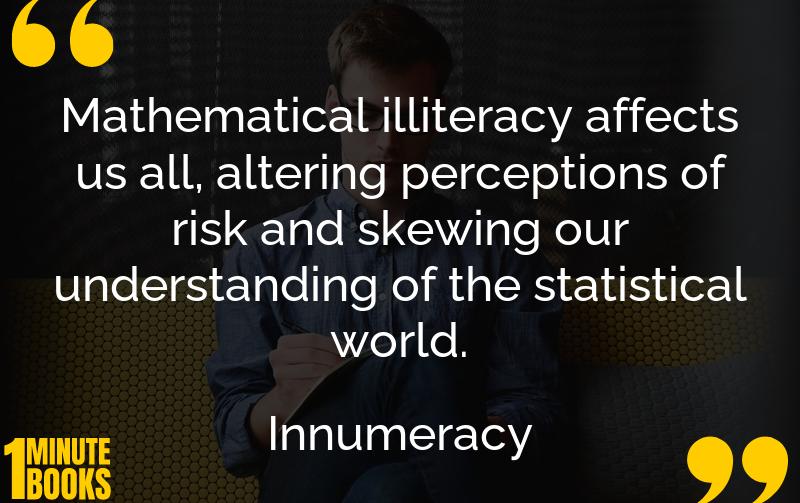
Innumeracy by John Allen Paulos explores the impact of mathematical illiteracy on society. With humor and insight, Paulos examines how a lack of understanding in math and statistics affects decision-making and risk interpretation.
Main Lessons
- Innumeracy goes beyond just mathematical literacy; it’s the failure to apply math in real-life situations.
- The book discusses how innumeracy can cripple society by influencing poor decision-making and risk assessment.
- A significant portion of the book covers basic statistics to help readers understand and interpret data.
- Paulos highlights common societal instances of innumeracy through various examples and anecdotes.
- The prevalence of innumeracy is linked not only to education but also to cultural and social factors.
- Paulos brings humor into explaining complex mathematical concepts, making them accessible.
- The logarithmic safety index suggests a better way to understand real risks versus perceived risks.
- The book is a call to increase mathematical thinking in a world often driven by pseudo-science and irrational beliefs.
- Paulos uses real-life examples to make mathematical ideas relevant and engaging.
- A critique of media portrayal of risks which often leads to skewed public perceptions.
- Numeracy is essential for critically assessing everyday claims and avoiding pseudoscientific traps.
- The book encourages readers to embrace mathematics for a clearer understanding of the world.








